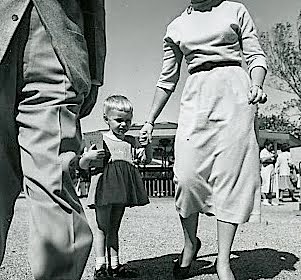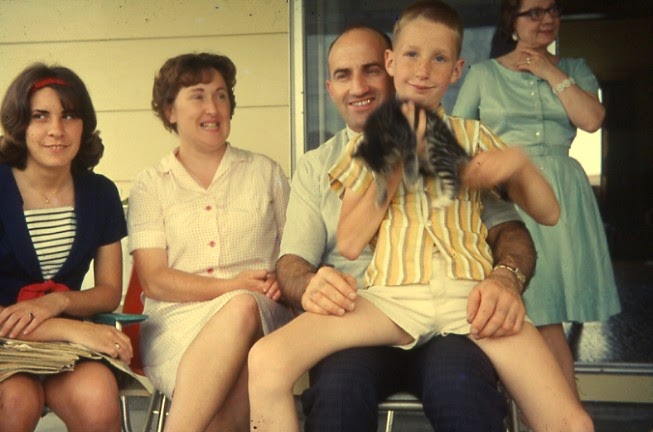


In these last few weeks of the semester as we talk about Alison Bechdel's graphic memoir, Fun Home, I want you to think about how the work we've accomplished in class can be used to better understand the role of narrative in our own lives. Freud's use of the Oedipus myth and his attention to children's literature and fantasies in "The Family Romance," give us two narrative structures through which to read not only literary works, like Fun Home, but our own lives as well.
If I had to boil down the relation between Freud's work and literature into the simplest formula it would be this: Freud teaches us once again about the central human importance of reading and writing narrative. Everything that humans communicate in any way in language is "telling a story" (and this goes for conscious and unconscious thought as well). In a very real way, the contents of your head are "just stories," that is, narratives constructed in interaction with your environment and meaningful to others. There is no "outside" of narrative if you are a homo sapiens; in fact there is currently some really good work in neuroscience on how the evolution of our brains has produced the necessity for narrative in order to construct a time-bound sense of our environment and cause-and-effect rationality.
As I've said in class, I find the Freudian Oedipal Complex and the Family Romance to be intimately connected. One is the story of the child's struggle to negotiate authority and eventually capitulate to its demands. But the other speaks of the creative ways we deal with those necessary compromises, finding ways to sublimate our frustrations, empower ourselves and even, on occasion, triumph.
While thinking about the Family Romance and the various ways we rewrite the scripts of our lives through fantasy and fiction, I was reminded of an episode of the radio program, This American Life that has always struck me as a poignant example of the very real power of "fiction." It is the story of two siblings who grew up in a house controlled by a domineering and crazy mother. While the brother was allowed all manner of freedom in his coming and going, the sister, because she was a girl, was under constant restriction, scrutiny, and accusation. To gain a measure of freedom the two siblings constructed a fictional family they told their mother that they were babysitting for. Because of their mother's particular blend of paranoia, semi-agoraphobia and insanity, they were able to bring off a complex deception based on the creation of an elaborate fantasy family, one which was both a substitute for, and a means of surviving, the family they lacked.
One of the moving things about this episode is hearing it told in the siblings own voices, especially the sister's, in whose tones one can still hear the joy of those long ago freedoms. You can listen to the audio here, it is Act Three of the Babysitting Episode (you can also purchase individual episodes of TAL on iTunes to download to your mp3 player). You can also read a transcript of the episode here, again scroll down to Act Three.
So when you start thinking about your final paper, I want you to also feel free to think about your own family narratives. Freud's work suggests that there is a certain narrative universality to family life. The particulars of Alison Bechdel's story are different from mine, but there is certainly much I can recognize in the subtle power struggles, the narrative gaps of family secrets, and the eventual need to put one's parents into proper perspective: neither gods nor monsters.


























































No comments:
Post a Comment